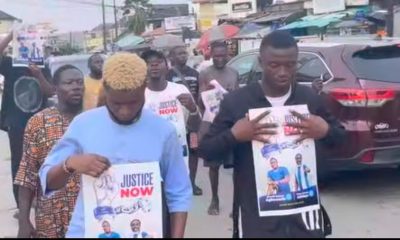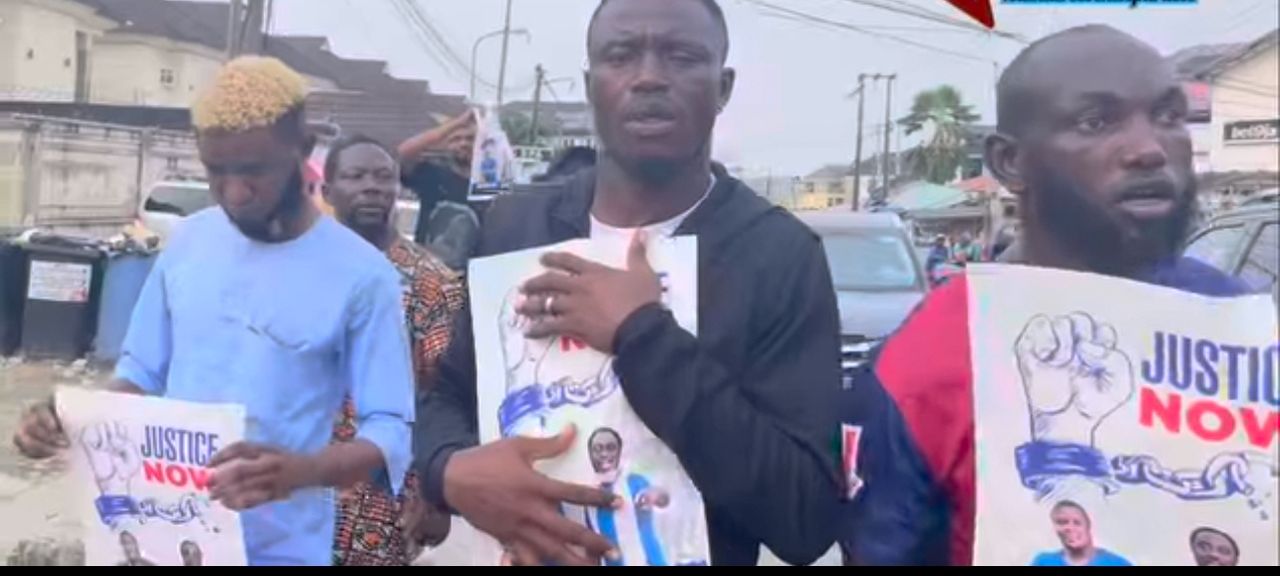society
What I Dislike About Primate Elijah Ayodele, Whom I Love So Much
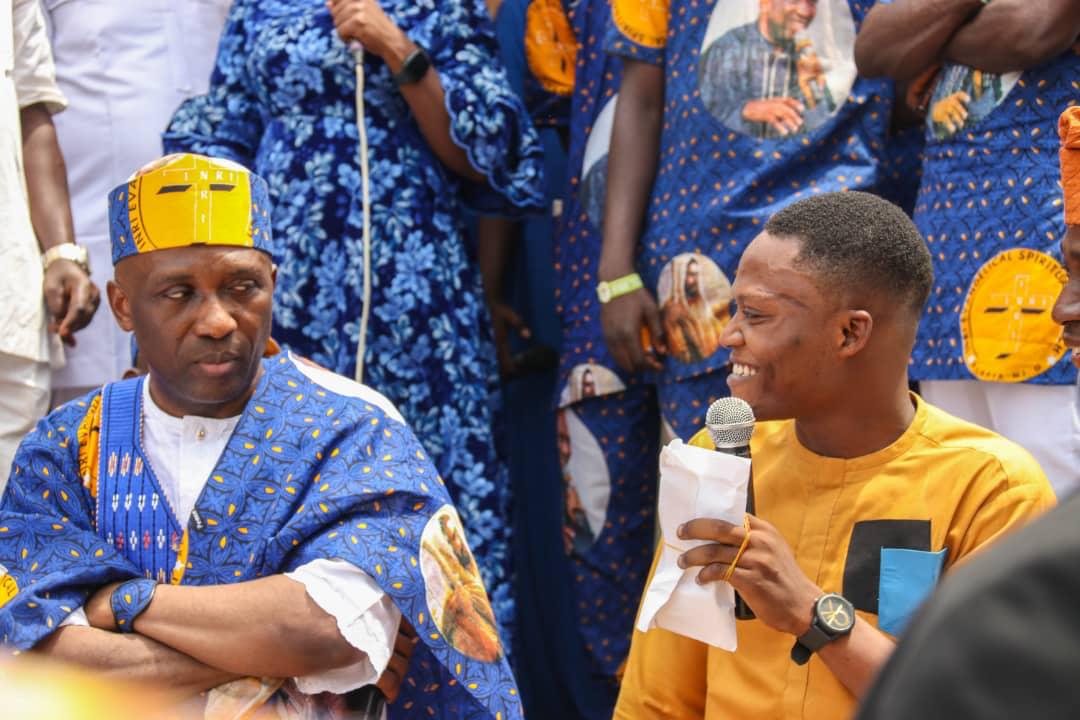
What I Dislike About Primate Elijah Ayodele, Whom I Love So Much
By Osho Oluwatosin
Every February 14 is a day I patiently look forward to because it represents the special and rare moment I get to celebrate the Leader of INRI Evangelical Spiritual Church, Primate Elijah Ayodele.
It feels strange referring to him as the Leader of IESC in this write-up because I can’t remember the last time I saw him in that capacity. I’m sure that if it weren’t for the need to include that title in our media materials, I might have even forgotten he holds such a title.
This isn’t because he isn’t worthy of the title; it’s just that Primate Ayodele has never really cared about this role. He often acts like a regular church member. One would expect a leader of a spiritual movement to be uptight, less accessible, and more distant, but not him. You’ll find him playing with children, hugging church members, dedicating time to counsel people, picking up their calls even at odd hours, and still being spiritually efficient. Maybe for him, being the Leader of IESC is just a title, but in reality, he acts more like the Chief Servant of INRI Evangelical Spiritual Church.
Well, this isn’t my main focus for today. Perhaps the spirit led me to talk about this briefly, but my intention is to express my feelings about what I dislike about the man, Primate Elijah Ayodele, whom I love so much.
Many may be surprised to realize that someone like me, who doesn’t spend a day without speaking to Primate Ayodele, would have something I dislike about this popular man of God. But I need everyone to understand that Primate is human and isn’t totally perfect. Therefore, today is the day I’ll expose the imperfection I’ve observed in Primate Ayodele.
Don’t get me wrong, I love Primate Ayodele like a son loves his father, like a husband loves his wife, like friends love each other, like Jesus loves the church. This expose about what I dislike about him cannot change the love I have for him.
To start with, Primate Ayodele is not just someone I work for. He is my physical and spiritual guardian, responsible for many positive things that have happened in my life over the last five years. I remember sharing how my meeting with him changed the trajectory of my life for the better, and even years later, I still look back and thank God for bringing him into my life.
Many times, I could be at a crossroads, unsure about something, and without even discussing it with him, he would bring it up during our solemn time, and immediately, I would feel relieved. You might be wondering what ‘solemn time’ is. Well, you might not fully understand, but it’s that moment when we have serious talks, which could happen once a week or a month. We talk often, joking and discussing various issues, but the solemn time is when I am quiet while he speaks to my innermost being. You can’t understand it; it’s not an ordinary moment. It is during these times that I receive answers to many of my problems.
In the physical realm, I’ve never seen anyone push my career as hard as Primate Ayodele does. In fact, I don’t put in as much effort as he does at any given point. He’s always willing to introduce me to important people, always looking for ways to connect me to opportunities, speaks proudly about me no matter who is around him, and always wants the best for me.
I remember when he surprised me with a car gift two years ago, out of the blue. I never expected it and didn’t initially understand what it meant until I realized he was sending me a message: ‘change of status.’ When I received the vehicle, I openly said that Primate Ayodele was my identity, and I wasn’t wrong in saying that. Even now, I don’t think I would have reached where I am if God hadn’t sent this man my way.
Mind you, I’m not the only one who has enjoyed Primate Ayodele’s generosity. Everyone can attest that whenever he does something for you, his next move is to disappear from you. This is what I don’t like—though I personally haven’t experienced it, many others have called me to complain about it.
Primate Ayodele is the kind of person who doesn’t like hearing the words “Thank you.” If you dare appreciate him for anything, he will just flee from you until you stop expressing gratitude.
About three years ago, Primate Ayodele rewarded one of Nigeria’s prominent journalists with a vehicle. For weeks after that, he didn’t pick up the person’s calls. The recipient became worried and even considered returning the car, but when he reached out to me, I simply told him that Primate Ayodele was running from him because he didn’t want to hear “Thank you.” Trust me, as soon as the person stopped thanking him, he started answering his calls again.
Another time, a veteran in the media industry was celebrating his birthday and reached out to Primate Ayodele. He sent some money to the person, and after that, he stopped answering his calls. The recipient called me, complaining about Primate Ayodele, and I told him the same thing. This man was initially surprised and didn’t want to believe it until he stopped saying “Thank you” and realized I was right.
It can be frustrating not to have the chance to show gratitude. Many thoughts might run through one’s mind, and the interesting part is that Primate Ayodele will never tell you that this is the reason he’s avoiding you. He’ll just go “missing in action” until you figure it out yourself.
However, I’ve come to realize that this decision not to listen to people showing gratitude is a form of humility and recognition that God is the only one who truly deserves our thanks. Primate Ayodele didn’t directly tell me this, but it’s just my observation. He probably doesn’t want to be appreciated because he doesn’t want to share in God’s glory. If you ask me, I would say that everyone has the right to do whatever they think is best to avoid seeing themselves as God in anyone’s life.
As Primate Elijah Ayodele celebrates his birthday today, I celebrate him as the most humble man of God I have ever met, the most resourceful, sophisticated person I have come across. Happy Birthday, Daddy.
– Osho Oluwatosin is the media aide to Primate Elijah Ayodele and the publisher of www.trixxng.com
society
Ajiran Youth Protest Over Deaths of Two Residents, Demand Justice
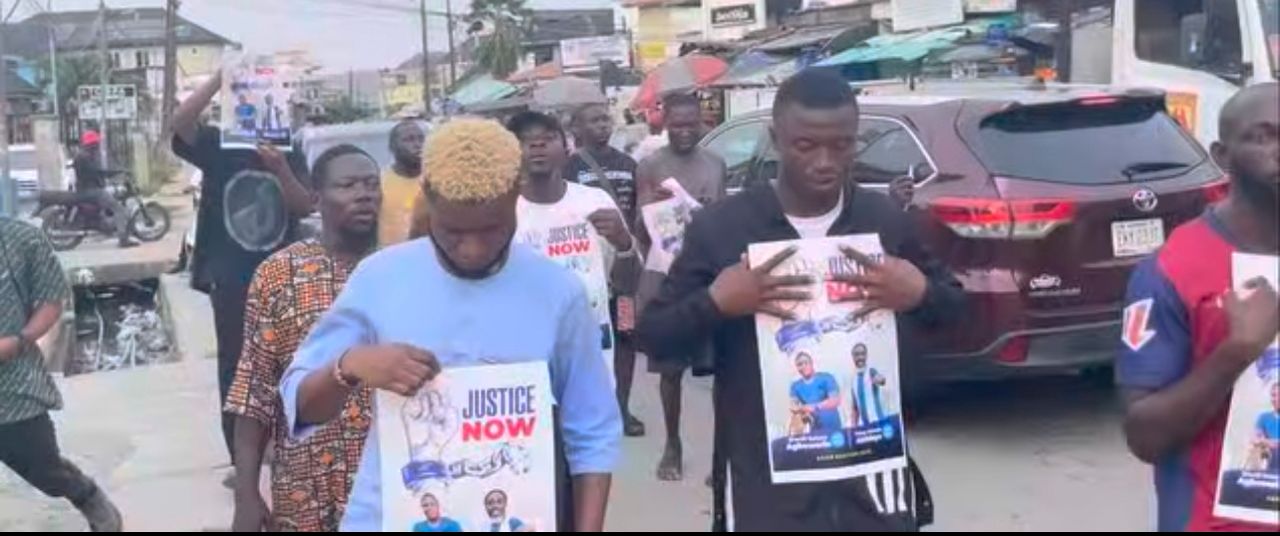
Ajiran Youth Protest Over Deaths of Two Residents, Demand Justice
The Ajiran community of Lagos State erupted in a powerful protest on Tuesday as local youths took to the streets to express their grief and anger over the tragic murders of Prince Ademola Akintoye and Sherrif Agboworin. The demonstration follows the recent decision to reopen the murder case, an investigation that has already led to the arrest of over nine suspects in connection with the heinous crimes committed more than a year ago.
Carrying vibrant banners and poignant posters featuring the faces of the deceased, the protesters marched through the heart of their community while singing somber dirges to honor their memory. With chants of unity and justice ringing in the air, they called on both the Lagos State Government and the Lagos State Police Command to ensure that those responsible are swiftly and decisively brought to justice.
The youth leaders emphasized that peace and normalcy will remain elusive in Ajiran until all those complicit in the killings are held accountable. They articulated that true justice is the only way to restore tranquility and honor the lives of Akintoye and Agboworin, whom they described as innocent victims of a grave injustice.
Speaking on behalf of the demonstrators, youth leader Mr. Kehinde Oladele urged law enforcement to conduct a thorough and fair investigation. He asserted that every individual involved including the nine arrested suspects must face the full extent of the law. Especially Hammed Tajudeen, the principal suspect mentioned by others in custody, whom they believe should not escape scrutiny.
“The reopening of this case after more than a year is a critical first step towards achieving justice and fairness for our brothers,” Oladele said. “We urge the police to get to the root of the matter. Those mentioned during the investigation, especially Hammed Tajudeen, should not be spared.”
The atmosphere in the community grew increasingly tense last week following speculation that prominent businessman Aare Bashir Olawale Fakorede was implicated in the unrest. The speculation appeared to stem from his alleged influence on the reopening of the murder investigation. This misunderstanding escalated when a group of protesters targeted his filling station in Ikate, vandalizing his properties and disrupting business operations in the gas station based on the false assumption that Fakorede was behind the police’s renewed inquiries.
In response to the rising tensions and misinformation, Fakorede’s spokesperson, Ola Muhammed, issued a comprehensive statement denying any connection between Fakorede and the unrest. The spokesperson emphasized that rumors suggesting the businessman orchestrated the revival of the murder case were completely unfounded.
“I feel it is crucial to clarify, for the sake of transparency and historical accuracy, that this entire ordeal is in no way related to me,” Fakorede stated. “I am also very interested to see that the culprits are brought to book. I categorically affirm that I have never been involved in any business dealings with Mr. Hammed Tajudeen.”
Fakorede further elaborated that the recent protests which led to the destruction of his property were reportedly instigated by Tajudeen and others who seem determined to manipulate the narrative and cast suspicion upon him. Fakorede expressed his own strong commitment to uncovering the truth surrounding the deaths.
As the police investigation progresses, it has become increasingly apparent that all accusing fingers are pointing to Hammed Tajudeen who is currently evading capture, adding another layer of complexity and urgency to the ongoing situation. Community members have questioned why he remains at large instead of submitting himself to the police for questioning if he is truly innocent of the allegations against him.
Community leaders are now emphasizing the need for dialogue to address the root causes of the unrest and work toward restoring harmony within Ajiran, even as the demand for justice remains at the forefront of public consciousness.
society
Ramadan: Al-Yusuff International Travels and Tours Boss Greets Muslims
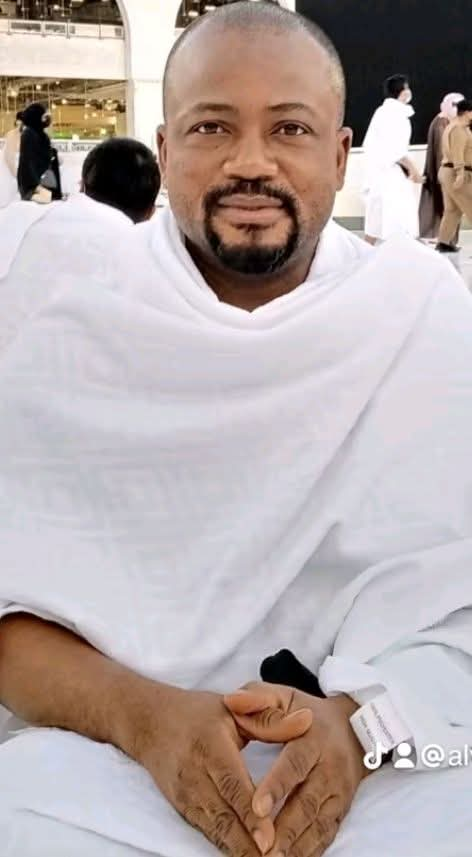
Ramadan: Al-Yusuff International Travels and Tours Boss Greets Muslims
As the holy month of Ramadan begins across the globe, the Chief Executive Officer of Al-Yusuff International Travels and Tours Limited, Dr. Abdulmajeed Oladele, has extended his heartfelt greetings to Muslims worldwide.
In his message, the respected business mogul expressed gratitude to Almighty Allah for the privilege of witnessing this year’s sacred month.
“We glorify Allah for granting us the grace and opportunity to witness this year’s month of blessings. Ramadan is a sacred and special month for all Muslims, a month greater than many others, filled with piety, mercy, and abundant blessings.
I congratulate all Muslims across the world. Let us faithfully observe the requirements of Ramadan. May Allah (SWT) grant our heart’s desires and make this period easy and rewarding for us all.”
Dr. Oladele urged Muslims to embrace the spiritual significance of Ramadan through devotion, charity, self-discipline, and prayers for peace and prosperity.
society
UKA UNVEILS THREE-TIER ATC PLATFORM AS MONARCH ANNOUNCES $10BN GOLD-BACKED MILESTONE

UKA UNVEILS THREE-TIER ATC PLATFORM AS MONARCH ANNOUNCES $10BN GOLD-BACKED MILESTONE
Emperor Nobilis Prof Solomon Winning declares global recognition of ATC ecosystem, urges citizens and partners to embrace unified digital, crypto and gold-backed financial structure
The Reigning Monarch of the United Kingdom of Atlantis (UKA), Emperor Nobilis Prof Solomon Winning, has formally announced what he described as a historic milestone in the financial evolution of the Atlantis nation and empire worldwide, the consolidation and global recognition of the ATC financial ecosystem backed by a $10 billion gold reserve.
In a voice message released from the Office of the Throne, the Monarch expressed gratitude to God and to citizens and partners across the globe for what he termed a “defining achievement” in the journey of the United Kingdom of Atlantis.
According to him, the ATC asset structure, supported by a $10 billion gold-backed certificate, has now been positioned among the world’s leading capitalisation financial platforms, ranking number 12 globally.
“We appreciate God for the milestone achieved of our 10 billion gold-backed certificate of ATC assets. We are delighted to inform our esteemed citizens, partners, viewers and friends all over the world that ATC has come to stay,” the Monarch declared.
Three Distinct but Interconnected ATC Platforms
Emperor Winning explained that the UKA Government and the Atlantis nation have officially released three integrated ATC platforms to the general public. He emphasised that while each platform serves a distinct purpose, they are structured to interact seamlessly for effective management, business transactions and global trading operations.
1.ATC Digital (Government Platform)
The first platform, known as ATC Digital, is the official government-backed digital transaction system. It is designed to facilitate digital financial operations within the UKA ecosystem and serve as the administrative and transactional backbone of the nation’s digital economy.
The Monarch described it as the formally recognised digital framework governed directly by the government under the Throne.
ATC Gold Version (Business and Trade Platform). The second platform, referred to as the ATC Gold Version, is primarily tailored for business trade, commercial exchange and transactional fluidity. It is structured to enhance business-to-business engagement, exchangeability and broader economic interaction.
“This version is mainly for business trade, business exchange and commercial transactions,” he clarified.
ATC Crown Coin (Crypto and Visitor Platform)
The third platform, known as the ATC Crown Coin, represents the Atlantis Crown Coin and is linked to what the monarch described as the Atlantean Bank Gold structure. This version operates as a crypto and digital hybrid, including visitor engagement capabilities and broader exchange functions.
(atlantisgoldbank.org
The Digital/Cryto currency Version
Atlantian Crown Gold (E-ATC) https://share.google/a7Jns9VtrMKCZ6Prk
The E-ATC purely for Trading and Exchang
Atlantean Crown (ATC) – The Future of Digital Currency https://share.google/1EhdkkDBFvBLLgfR1
The Digital version for Government
We also Have DEOS INTERNATIONAL Bank (DIB)
And ATCB)
The Monarch indicated that all three platforms are interconnected to ensure efficiency, transparency and global recognition.
“Please do not be confused. The United Kingdom of Atlantis has three major versions of ATC. Two are crypto-based, one is digital; one is also a hybrid of crypto and digital. All three interact together for effective management and effective business transactions.”
Global Recognition and Expansion Vision
Emperor Winning further asserted that the ATC ecosystem is already recognised internationally and positioned within the global financial framework. “Our platforms are presently recognised in the whole world,” he said, while encouraging existing holders of ATC assets to remain confident in the system.
He congratulated all ATC holders and reiterated the Throne’s commitment to strengthening the ecosystem’s credibility, usability and cross-platform functionality.
A Strategic Financial Architecture
Observers say the three-tier structure reflects an attempt by the United Kingdom of Atlantis to create a multi-layered financial architecture combining government-regulated digital systems, crypto-based trade platforms and gold-backed reserve credibility.
By integrating digital governance with cryptocurrency and gold certification, the UKA appears to be positioning ATC as both a sovereign-backed asset and a tradable global instrument.
As the UKA advances its financial ambitions, the monarch’s message signals a push for adoption, participation and global engagement with the ATC ecosystem.
“If you are a holder of ATC, congratulations to you from the Throne. God bless you,” the monarch concluded.
The development marks another significant chapter in the evolving digital and gold-backed finance narrative emerging from the United Kingdom of Atlantis.
-

 celebrity radar - gossips6 months ago
celebrity radar - gossips6 months agoWhy Babangida’s Hilltop Home Became Nigeria’s Political “Mecca”
-

 society6 months ago
society6 months agoPower is a Loan, Not a Possession: The Sacred Duty of Planting People
-

 news6 months ago
news6 months agoTHE APPOINTMENT OF WASIU AYINDE BY THE FEDERAL GOVERNMENT AS AN AMBASSADOR SOUNDS EMBARRASSING
-

 society5 months ago
society5 months agoReligion: Africa’s Oldest Weapon of Enslavement and the Forgotten Truth


